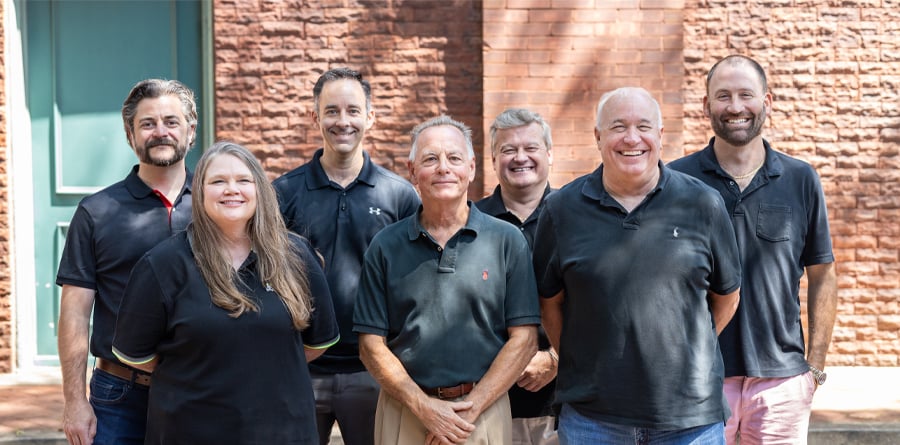Navigating the intricacies of the criminal justice system can be a daunting experience, particularly when facing a felony charge. This comprehensive guide aims to demystify the process for individuals who find themselves in such a situation in Kentucky state court. Please note, that while this post is informative, it is not an exhaustive resource nor a replacement for legal advice from an experienced criminal defense attorney, as every case is unique. Our discussion will cover aspects such as bond, district court proceedings, grand jury deliberations, and circuit court procedures. We hope to provide clarity about what to expect, as understanding the process can often alleviate some anxieties associated with these charges.
If you or a loved one has been charged with a felony, the whole thing probably seems overwhelming. This blog post will give you some idea of what to expect next if you have been charged with a felony in Kentucky state court. Please be aware that every case is different, and no website can cover every possibility or substitute for the advice of an experienced criminal defense attorney.
Bond
The first question most people ask is, “how do I get out of jail?” In Kentucky, most people charged with an offense are entitled to post bond. It sometimes takes a while for a judge to set bond, but in most cases one is set within a day of the person being arrested. Bond orders impose conditions on the release of a Defendant. Bonds always require that the Defendant commit no new offenses and make all court appearances. They may require avoiding certain people or places, abstaining from drugs and alcohol, or any number of other conditions. If the Defendant abides by the conditions of bond, the bond will be returned to the person posting it at the end of the case. If they do not, some or all of the bond could be forfeited. There are several different types of bonds:
- Cash – you must post the full amount in cash. For a $2,500 bond someone would need to bring $2,500 in cash to the jail or the clerk’s office. Cash of $10,000 or more must generally be paid at the clerk’s office, not the jail.
- A percentage bond – you must post a portion of the cash and agree to pay the balance if the Defendant doesn’t abide by the bond conditions. For a $2,500 (10%) bond, this would mean posting $250 and agreeing to pay the $2,250 balance if the Defendant fails to abide by bond conditions. Note that with 10% bonds the clerk keeps 10% of the amount posted, even if the Defendant abides by all bond conditions – i.e. $25 for a $2,500, 10% bond.
- Property – a Kentucky landowner must agree to a lien on their property. The property must have equity of at least twice the bond amount, i.e. for a $2,500 property bond, the landowner would need to have at least $5,000 of equity in the property.
Bonds are frequently set such that more than one option is available, such as a “cash or property” bond, which could be posted with cash, property, or a combination of the two. Note that most counties also require a non-refundable bond fee – generally it is $50. It is usually in the Defendant’s best interest to go ahead and bond out of jail. If the bond is set so high that the Defendant cannot post it, it may be reduced at a later point in time.
District Court
Most felony cases begin in District Court. The first court appearance is usually an arraignment. At arraignment, the judge will explain the Defendant’s constitutional rights, and in the case of a felony, will enter a not guilty plea. The case will then typically be scheduled for a preliminary hearing. Most of the work done by District Courts involves misdemeanors. However, in felony cases the District Court judge will consider some evidence to determine whether the case should proceed to Circuit Court.
This process is called a preliminary hearing. At a preliminary hearing, the prosecution and defense are given an opportunity to call witnesses, and those witnesses can be cross-examined. At the conclusion of the hearing, the judge must determine whether there is probable cause that a felony has been committed by the Defendant. This is a low standard of proof, and judges find probable cause at the conclusion of most preliminary hearings. Sometimes, prosecutors are willing to amend felony charges to misdemeanors at the preliminary hearing. In this circumstance, the Defendant and his lawyer will need to carefully consider any offer the prosecutor makes. If the parties reach an agreement, a felony charge can be amended (or dismissed) at the preliminary hearing, and the case can be resolved that day.
Grand Jury
If the judge finds probable cause at the end of a preliminary hearing, the case will be referred to a grand jury. The grand jury is group of ordinary citizens who will listen to some of the evidence in the case and determine whether the case should be prosecuted. If they believe the case should go forward, the Defendant will be indicted (charged in circuit court). It can take two months or longer for a case to be heard by the grand jury. In some felony cases there are never proceedings in District Court. A grand jury can issue what is called a direct indictment, which leads to charges being instituted at the Circuit Court level.
Circuit Court
After a Defendant is indicted, there will be another arraignment, this time in Circuit Court. At arraignment, the Defendant will almost always be pleading not guilty. The defense lawyer will typically file a motion for discovery and a motion for a bill of particulars. The prosecutor must then provide the defense with evidence in the case (this is known as discovery). It is critical that the Defendant and his lawyer spend time reviewing all of the discovery in the case.
They will then need to weigh the pros and cons of having a trial. In every felony case, the Defendant is entitled to a trial by jury. The Defendant cannot be convicted unless a jury finds beyond a reasonable doubt that the Defendant committed every element of the crime. If the jury unanimously agrees that there is reasonable doubt about the Defendant’s guilt, they must find him not guilty. Sometimes a jury cannot reach a unanimous agreement, in which case there is a hung jury and the case may have to be tried again.
Most felony cases do not go all the way through a jury trial. Generally, prosecutors and defense lawyers engage in plea bargaining. In most felony cases, the prosecutor is willing to recommend a certain sentence, or reduce a charge, in exchange for a guilty plea. There are many other possible outcomes from plea bargaining, however, including agreements that do not require entry of a guilty plea and/or result in the charges being dismissed.
Conclusion
Hopefully this guide has answered some of your questions. There are many other details that only a knowledgeable lawyer can fully explain to you. The most important thing that you can do if you are charged with a felony is retain an experienced criminal defense attorney. Anyone charged with a felony should consult an attorney immediately. If you have been charged with a crime and have questions, contact the Edwards & Kautz Law Firm Law Firm at 270-908-4914 to schedule a free legal consultation with an experienced criminal defense attorney.



